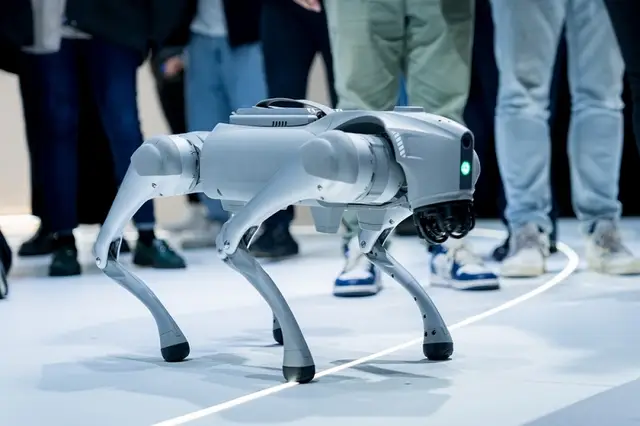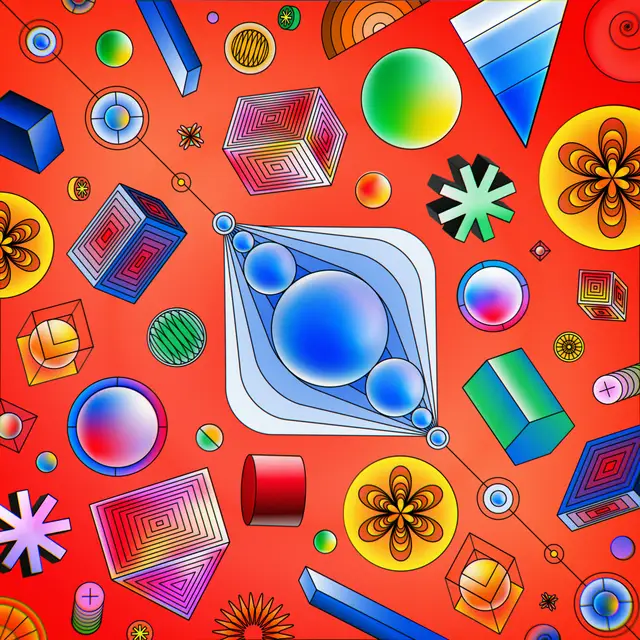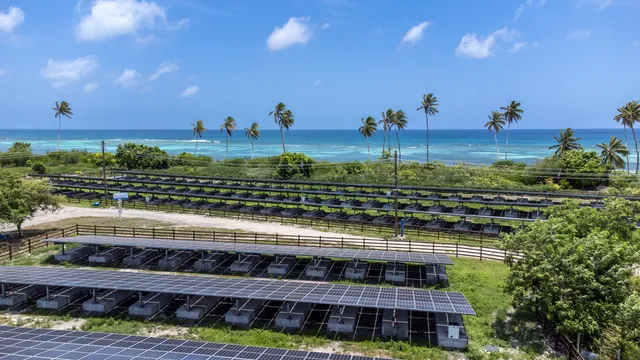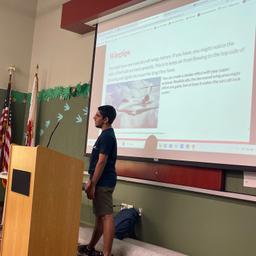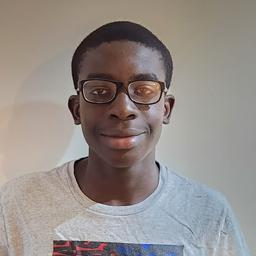Common types of engineering research include civil, mechanical, electrical, and chemical. However, lesser-known branches are equally intriguing. These include aerospace engineering (dealing with aircraft and spacecraft), biomedical engineering (applying engineering principles to healthcare), environmental engineering (solving environmental challenges), geotechnical engineering (focusing on soil and rock mechanics), and materials engineering (developing new materials for industry). Additionally, emerging fields like nanotechnology and mechatronics blend engineering with cutting-edge technologies. Industrial engineering optimizes processes, while architectural engineering combines architecture and engineering in building design.
Upon graduation, an engineering degree opens doors to numerous career options. Traditional roles include Civil, Mechanical, Electrical, and Chemical Engineers. Biomedical Engineers work on medical devices and healthcare technologies. Environmental Engineers address environmental concerns. Aerospace Engineers design aircraft and spacecraft. Materials Engineers develop advanced materials. Geotechnical Engineers specialize in soil and rock mechanics. Mechatronics Engineers merge mechanics and electronics. Industrial Engineers optimize processes. Agricultural Engineers enhance agricultural systems. And Architectural Engineers focus on building design. Emerging fields like Nanotechnology Engineers and Robotics Engineers offer exciting opportunities for the future.
Because engineering is a diverse field with numerous specializations, take time to figure out what really captivates you. Read about the projects you wish you could work on and watch documentaries and YouTube videos (there are lots, including Engineering Explained, Mark Rober, and Real Engineering, to name but a few) about different aspects of engineering.
Here also are some high school classes, books, and extracurriculars to get you started on your engineering journey.
1. Take a Class in High School
High schools vary in their engineering offerings. Some high schools have specific engineering programs, such as Project Lead the Way, with specific curriculums designed to prepare students for careers in engineering. Others don’t. Here are some classes and subjects you should consider taking in high school to help you master engineering fundamentals.
Geometry helps with spatial visualization and understanding of shapes, which is important for design and modeling.
Trigonometry is essential for working with angles and triangles, which are common in engineering, especially in fields like civil and mechanical engineering.
Calculus is a cornerstone of engineering. Courses in both differential calculus and integral calculus are crucial for solving dynamic problems, optimizing designs, and understanding rates of change.
Physics is highly useful for engineers, as it provides a deep understanding of the physical world and the principles governing it. Courses in classical mechanics, electromagnetism, thermodynamics, and other physics topics are relevant to various engineering disciplines.
Chemistry is useful for engineering, especially in materials science and chemical engineering, where an understanding of chemical reactions and properties of materials is critical.
Environmental Science is practical given the increasing focus on sustainable engineering.
Communication and Public Speaking are essential for presenting ideas, collaborating with teams, and conveying complex technical concepts to non-experts.
Enroll in the AP version of math and science courses to challenge yourself and earn college credit. Again, if your high school offers introductory engineering, technology, or computer science courses, consider taking these to gain early exposure to engineering concepts.
2. Read a Book
Engineering books can be daunting due to their highly technical content and the math involved, but there are strategies to make them more manageable. Start by breaking down complex concepts into smaller, digestible sections, and take notes as you read. Use external resources like online tutorials and videos to clarify challenging topics. Don't hesitate to seek guidance from teachers or mentors. Mastering engineering texts often involves gradual comprehension and repeated readings to solidify your understanding of the material. Have patience and break the work down into smaller chunks.
Foundational Texts:
Shigley's Mechanical Engineering Design by Richard G. Budynas and J. Keith Nisbett Is a widely acclaimed textbook that provides comprehensive insights into the principles and practices of mechanical engineering design.
Statics and Mechanics of Materials by Russell C. Hibbeler is a fundamental text for understanding structural mechanics.
Introduction to Electrical Engineering by Mulukutla S. Sarma provides a solid foundation in electrical engineering principles.
Engineering Mechanics: Dynamics by J.L. Meriam and L.G. Kraige is essential for understanding the dynamics of mechanical systems.
Introduction to Chemical Engineering: Tools for Today and Tomorrow by Michael D. Barrett offers insights into the core principles of chemical engineering.
Thought-Provoking Works:
The Big Ratchet: How Humanity Thrives in the Face of Natural Crisis by Ruth DeFries explores the resilience of human societies and the role of engineering in adapting to environmental challenges.
The Upcycle: Beyond Sustainability—Designing for Abundance by William McDonough and Michael Braungart discusses innovative engineering and design approaches for a more sustainable world.
The Grid: The Fraying Wires Between Americans and Our Energy Future by Gretchen Bakke examines the challenges and opportunities in modernizing the electrical grid.
Superconductivity: A Very Short Introduction by Stephen J. Blundell discusses the fascinating and potentially disruptive field of superconductivity in electrical engineering.
Skunk Works: A Personal Memoir of My Years at Lockheed by Ben Rich offers a firsthand account of the legendary aerospace development division at Lockheed Martin, revealing the innovative and secretive projects that shaped aviation and military technology.
Exactly by Simon Winchester explores the intriguing history of precision and the pivotal role it has played in shaping our modern world.
To stay updated on the latest developments in engineering, you should also follow respected engineering news outlets and journals, such as "Engineering News-Record" and "IEEE Spectrum."
3. Extracurricular Study
Extracurricular activities are not just about building your resume but also about genuinely exploring your interests and passions and meeting like-minded peers. A lot of these options are also great for showcasing your own engineering research project, should you choose to go that route.
Robotics Team or Club: Join or start a robotics team for the FIRST Robotics Competition, VEX Robotics Competition, RoboRAVE International, or other such challenges to gain hands-on experience in designing and building robots, a valuable skill for many engineering fields.
Solar Car Racing: Join a team building and racing solar-powered vehicles, combining engineering with sustainability efforts.
Math and Science Competitions - Compete in math and science competitions like the Math Olympiad, Science Bowl, or Intel International Science and Engineering Fair (ISEF) to test and expand your knowledge.
Coding and Programming Clubs: Develop programming skills that are crucial in many engineering fields.
Volunteer Work: Seek volunteer opportunities at science centers, maker spaces, or with organizations related to engineering and technology. You can really get creative here. Get involved in restoring and preserving historical civil engineering landmarks or participate in bridge inspections. Explore alternative and renewable energy sources through hands-on projects like wind turbines, hydroelectric generators, or geothermal systems.
Internships: Seek internships or shadowing opportunities with practicing engineers. This firsthand experience can give you insight into the day-to-day work of professionals in the field.
One of the most powerful engineering research opportunities for a high school student is involvement in mentorship programs at local universities or research institutions. Collaborating with experienced engineers gives you the chance to work on cutting-edge projects, gain exposure to advanced equipment, and develop a deeper understanding of engineering principles. These programs often provide guidance, support, and the chance to publish research findings.They also offer valuable networking opportunities that can open doors to future educational and career prospects in the field of engineering. Next to finding a program close to home, your next great opportunity would be a pre-college summer engineering program.
Find research programs close to home
To find engineering research opportunities close to home, check out our High School Student Research Opportunities Database. Click on your state, then search based on your location, institution, event type (in-person or virtual), and tuition (paid or free).
Work with a professor
If you have a clear project idea, you can reach out to professors in your field to see if they are open to collaborating with you. Refer to our Guide to Cold-Emailing Professors (written by Polygence literature research mentor Daniel Hazard, a Ph.D. candidate at Princeton University).
Engage in your own research project
Students with initiative and focus can opt to tackle research independently. Carly Taylor, a Stanford University senior who has completed several research projects this way, outlined a guide about how to write a self-guided research paper. By reading it, you’ll get a better understanding of what to expect when taking on this type of project. If you would like a little guidance and support, you can also choose to work with one of our Polygence engineering mentors.
Enter a competition
The requirements and deadlines that competitions require you to meet provide a very helpful structure to keep your engineering research moving forward. For some ideas, check out our post Best Math Competitions for High School Students. (Even though it is a math-focused post, there are a few opportunities listed specifically for engineering students.) Another benefit to attending a competition is that you will meet other students, teachers, and even experts in the field you love most.
Here are some top picks for summer engineering research programs. We chose them based on a combination of their affordability, name recognition, social opportunities, and academic rigor.
1. In-Person Program @ BlueStamp Engineering
Hosting institution: BlueStamp Engineering
Location: San Jose, CA or remote (via Zoom)
Deadline: May
Cost: $4,900 for in-person; $2,200 for remote
BlueStamp Engineering’s programs are independent of a university or large corporation. The In Person Program offers hands-on engineering experience where students get to create tech projects from scratch, such as hovercrafts and self-driving cars. During the program, students also keep track of their engineering project journey through documentation and milestone videos. This allows students to build a unique online portfolio. Check the site for the most current application information.
2. Summer STEM
Hosting institution: The Cooper Union, Albert Nerken School of Engineering
Location: New York, NY
Deadline: Rolling admission
Cost: 3 week class: $1,950; 6 week class: $3,995
This program offers introductory and advanced design and engineering classes for high school freshmen and above. Whether it’s a student’s first exposure to engineering or something they want to dive deeper into, this is a great learning opportunity. The classes are equivalent to what Cooper Union college students take in their first and second year, you’ll be getting a true college course experience as a high schooler. Check the site for the most current application information.
3. My Introduction to Engineering (MITE)
Hosting institution: University of Texas at Austin Cockrell School of Engineering
Location: Austin, Texas
Deadline: Early March
Cost: $80
A much more affordable option, the MITE program is a five day camp for current high school juniors. Students learn engineering through an engineering team project and by interacting with staff and current engineering students. The opportunity to interact with experts in the engineering field as well as current students is definitely a great plus of the program. Eligibility for the program includes transcript details as well as specific standardized testing scores. Check the site for the most current application information.
If you’re searching for a virtual engineering research opportunity, consider doing a project through Polygence with one of our engineering mentors.
For more summer program opportunities, read 13 Summer Engineering Programs for High School Students
A few of the summer programs we found were either paid or unpaid internships.
Summer High School Research Program
Hosting institution: Laboratory for Laser Energetics (LLE) at University of Rochester
Location: Rochester, NY
Deadline: Mid-March
Cost: Free (paid internship)
This 8-week summer program is for students in their junior year of high school. Since it’s a commuter program, it’s designed specifically for students who live near the Rochester area.
Beyond its eligibility limitations, the program actually offers a ton of hands-on experience, where students are assigned to a research project and supervised by a scientist or engineer from the Laboratory. These projects are all related to the Laboratory’s OMEGA laser, one of the most powerful fusion lasers in the world. The website also makes clear that students work 40 hours a week. Check the site for the most current application information.
HighTech Bound
Hosting institution: University of New Hampshire InterOperability Laboratory
Location: Durham, NH
Deadline: End of February
Cost: Free (paid internship)
For high school students entering their senior year, this program offers students the opportunity to learn about network technologies. Students work in a computer laboratory and learn about the latest technologies and software, such as smart cars and internet-connected devices. HighTech Bound also offers potential employment opportunities after the program, which is a great perk that isn’t found in many of these engineering opportunities for high schoolers. Check the site for the most current application information.
Goddard Space Flight Center Internship Program
Hosting institution: NASA
Location: Various locations (Virginia, Maryland, New York, West Virginia)
Deadline: N/A
Cost: Free
The Goddard Space Flight Center offers hundreds of internships at its various locations for current sophomores and above. These internships are unique opportunities as they allow students to take advantage of some of NASA’s groundbreaking missions and projects. Students will also work under the guidance of a NASA mentor. Check the site for the most current application information.
For all of our internship recommendations for aspiring engineers, be sure to read Top Engineering Internships for High School Students.
To come up with topic ideas for your engineering research project, consider your interests and current challenges in society. Explore areas like renewable energy, environmental engineering, robotics, biomedical devices, or software development. Brainstorm questions that intrigue you within these fields or others. You can also look at recent scientific journals and news articles for inspiration. Topics could include improving water purification methods, designing a sustainable transportation system, creating a new smartphone app, or researching advancements in medical technology.
Try exploring lesser-known and intriguing engineering fields. Consider underwater robotics for deep-sea exploration, where engineers have designed and built submersible robots for scientific research. In the field of acoustical engineering, you could look into the development of noise-canceling technologies for open-plan offices. Another fascinating area is biofabrication, where biomedical engineers have experimented with 3D printing for medical applications. The key is to choose a topic that resonates with your passion and has real-world relevance. This will make your project engaging and meaningful so you’re more likely to stick with it.
Polygence Scholars Are Also Passionate About
A word about prototypes. High school engineering research projects can certainly incorporate prototype building, but the extent to which it's feasible depends on the project's complexity and available resources. Prototype building is a great way to build problem-solving skills and gain hands-on experience. However, factors like time, budget, and access to materials and equipment may make prototyping difficult to pull off. While simpler projects may involve building physical or digital prototypes, a literature review might not require a physical model. A literature review is a synthesis of key work that has been conducted about a topic over several years. Doing the research to conduct a literature review will deepen your understanding of your chosen engineering topic. Try to strike a balance between your ambitions, your resources, and your deadline (which is always a good thing to have in order to complete the project!).
Biomedical Engineering: Review of Artificial Clots For Preclinical Testing of Endovascular Medical Devices
Level: Beginner
The medical device industry is looking to improve the ways in which they test their endovascular devices. This is a chance for you to gain a better understanding of how certain devices work, and to help come up with ideas to make them better. Your goal will be to write a review paper to better explain your findings and thoughts.
Idea by engineering research mentor Bo
Civil Engineering: Understanding Structural Failures
Level: Beginner
Although it’s devastating when buildings collapse, these failures leave us with a learning opportunity to explore. Identify a destroyed building or structure and start looking for clues! Why did the building collapse and what could have prevented it? With consent, feel free to interview the individuals who were troubled by this structural failure. How did this event impact the individuals local to the area?
Idea by engineering research mentor Caroline
Electrical Engineering: Systems Exploration (Data/Energy)
Level: Intermediate
How is technology so smart? By simply pressing a button you communicate with your device and it knows what you’re asking it to do, but how? Select an application of your choice to thoroughly examine from the inside out. Take a deeper dive into the engineering process to better understand the complexity of each system. The final project will include a detailed case study covering one piece of the stack, along with a survey of your findings
Idea by engineering research mentor Bob
Check out even more project ideas on the 10 Engineering Research and Passion Project Ideas for Middle and High School Students post, which breaks up ideas up into different engineering categories such as aerospace, bio, biomedical, chemical, civil, electrical, mechanical, and general.
You can also brainstorm your own project ideas based on what technical challenges interest you. If you want help narrowing down your engineering topic, the Pathfinders program gives you the chance to meet with three different mentors who specialize in your fields of interest. You can discuss your project ideas with them, and they can help you grow your idea, discover new research techniques, and point the way to great resources and alternative options.
Here are some inspiring engineering research projects done by some of our Polygence Scholars. Two are literature reviews and one involves the building of a physical device.
Multi-Speed Gearboxes for Battery Electric Vehicles
Shrihan hypothesized that implementing a multi-speed gearbox in Battery Electric Vehicles (BEVs) could improve powertrain performance and energy efficiency. To test this hypothesis, he integrated a three-speed gearbox into a Nissan Leaf, an existing electric car, and conducted experiments using the car's powertrain specifications and electric motor performance data. You can read about his results here.
A Trade Study of Lunar Power Plant Technology
Thinking about future lunar missions, Yashas assessed power sources for a permanent lunar base, specifically on the rim of the Shackleton Crater on the Moon's South Pole, with a focus on low upfront and per-unit costs, safety, and reliability, He analyzed power sources like solar panels and nuclear fission reactors, as well as emerging solutions like nuclear fusion and laser beaming. Based on his research, he concluded that mirrors in high, polar lunar orbit, continuously reflecting sunlight onto a collector system below, represented the most favorable power source for the specified lunar base scenario. You can read the full study here.
AutoMelter: An Anti-Snow System for Driveways
Youssef built an automated device utilizing an Arduino and various sensors to melt snow upon detection. He argued that AutoMelter represents a cost-effective and efficient alternative for snow removal on driveways, combining the advantages of manual shoveling, snowplows, and heated driveways while eliminating their disadvantages. You can watch Youssef’s Automelter presentation here.
Check out all the engineering projects done by Polygence Scholars.
Begin by clearly defining your engineering question or topic. Come up with a thesis statement. You can always come up with a preliminary or working thesis and then refine it or completely revise it as you learn more. Next, conduct thorough research, collecting and critically assessing relevant academic articles and books. As you gather information, you can begin outlining your research paper.
Writing an engineering research paper differs in some key ways from subjects like history, psychology, or economics. In engineering, you often need to include detailed technical diagrams, equations, and graphs to illustrate your methods and findings. The language is highly specialized, which can be challenging for general readers. Precision and clarity are essential to ensure that your work can be understood by experts and non-experts alike.
Engineering papers also usually follow a specific format that includes sections like an abstract, introduction, methodology, results, discussion, and conclusion. The methods and results sections are particularly crucial, as they often involve complex experiments, simulations, or data analysis. Clear, concise explanations of the engineering processes are essential.
A truly outstanding engineering research paper demonstrates innovative problem-solving and original contributions to the field. It presents a well-defined research question, a rigorous methodology, and comprehensive data analysis, offering clear and insightful interpretations. It also places its findings in the context of existing knowledge, underlining its relevance and potential impact on the field, making it a valuable and transformative contribution to the field.
If you need more general guidance overall, here’s a great article on how to write a good research paper. Also, if you have some ideas and want the support of a skilled expert, you can work with a Polygence engineering mentor.
Once you’ve researched, written, and perfected your research paper, it’s time to introduce it to the world. You could enter it at a science fair, as mentioned earlier in this post, or publish it in a journal. Publishing your research in a peer-reviewed journal can take the great work you’ve already done and add credibility to it. It also makes a stronger impression than unpublished research. The process of having your work reviewed by advanced degree researchers can be a valuable experience in itself. You can receive feedback from experts and learn how to improve upon the work you’ve already done.
Here are some publications you could look into:
The Journal of Emerging Investigators (JEI)
JEI is an online, peer-reviewed journal that publishes research by middle and high school students in various scientific disciplines, including engineering. Please note that JEI requires that a teacher, mentor, or Principal Investigator of a lab submit your research on your behalf.
Cost: Free
Deadline: Rolling
Type of research: Original research in the biological and physical sciences written by middle and high school students.
Journal of High School Science
The Journal of High School Science is a peer-reviewed quarterly publication showcasing high school student research in the realm of science, technology, engineering, arts, and mathematics.
Cost: Free
Deadline: Rolling
Type of research: STEAM-based research or innovations by high school students.
Regarding getting your project accepted and published at these or any other peer-reviewed journal: Be prepared for the possibility of rejection or revisions. Scientific publishing is a competitive process, so maintain a positive attitude and be persistent in your efforts to improve and disseminate your research. (Quote from The Journal of High School Science website)






